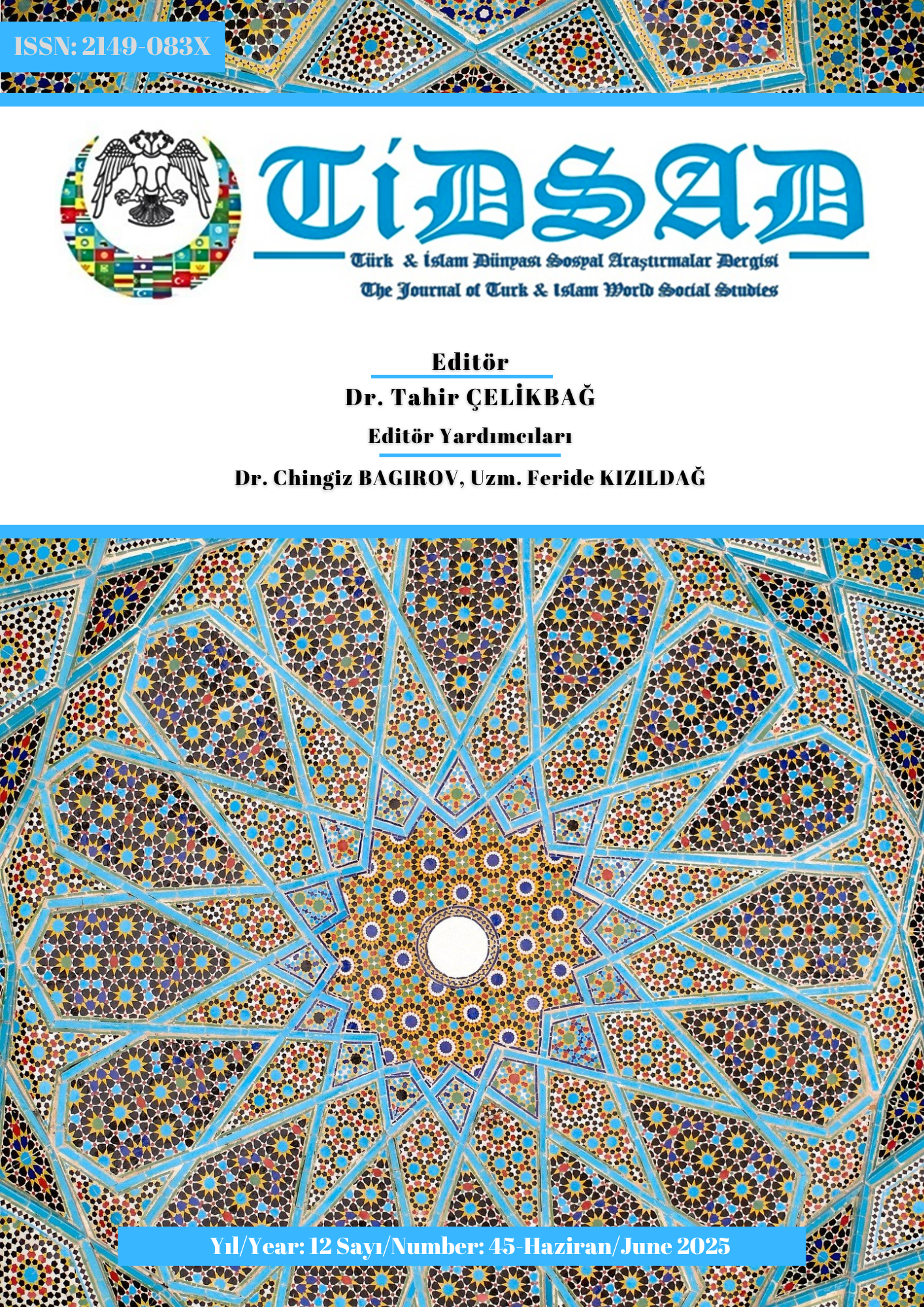Kitab-ı Mukaddes’e Göre Babil Sürgünü Sonrası Yahudilerin Kudüs’e Dönmelerinde ve Süley-man Mabedi’ni Yeniden İnşa Etmelerinde Ahamenişlerin/Perslerin Rolü
Author :
Abstract
İbrahimi/Semavi dinlerin ortak atası olarak kabul edilen Hz. İbrahim, Asur/Irak’tan Harran’a oradan da Kenan/Filistin bölgesine gelmiş, yerleşmiş. Zamanla Yahudilik bu bölgede doğmuş, gelişmiş. İbraniler tarafından burada İsrail Krallığı kurulmuştur. Yahudi tarihi ve dini geleneği açısından Kudüs ve çevresi oldukça önemlidir. Kudüs bölgesi Hz. İsa’nın Yahudi kökenli olması, Zeytin Dağı’nda ve mabette dini faaliyetlerde bulunması nedeniyle Hristiyanlık açısından önemli yerlerden biridir. Bir dönem Müslümanların kıblesi oluşu ve dini gelenekte önemli konumu nedeniyle İslamiyet açısından da Kudüs oldukça değerlidir. Yahudi geleneğinde dini ve milli kimliğin temel unsurlarından biri Kudüs şehri ve burada inşa edilen Süleyman Mabedi’dir. Yahudi teolojisi ve geleneği açısından kutsal mekân, bölgedir. Tarihsel süreçte Babil Kralı Nebukadnezzar tarafından Süleyman Mabedi yıktırılmış, Yahudi toplumu Babil’e sürgün edilmiştir. Babil devletini yıkan Ahamenişler/Persler, Yahudilerin Kudüs’e dönmelerine ve Süleyman Mabedi’nin yeniden yapımına izin vermişler. Yahudiler Kudüs’e dönebilmiş, dini ve milli kimlik korunmuş, bu durum büyük oranda Yahudilerin dini ve kültürel açıdan erimesini engellemiştir. Ahamenişler döneminde Yahudilerin elde ettiği konum Yahudi kutsal kitabı Tevrat’ı/Tanah’ı da içeren Kitab-ı Mukaddes’in II. Tarihler, Ezra, Nehemya, Ester ve İşaya bölümlerinde detaylı olarak işlenmiştir. Genel olarak Ahamenişler döneminde Yahudilerin önemli konumlara yükseldikleri, güven ortamında yaşadıkları Kitab-ı Mukaddes’in anlatımında görülmektedir. Kudüs şehrinin ve Süleyman Mabedi’nin tarihsel gelişimini bilmek Kudüs’ün önemini ve işlevini anlamaya katkı sağlayacaktır.
Keywords
Abstract
The Prophet Abraham, who is considered the common ancestor of the Abrahamic/Mosaic religions, came from Assyria/Iraq to Harran and from there to the Canaan/Palestine region and settled there. Over time, Judaism was born and developed in this region. The Kingdom of Israel was established here by the Hebrews. Jerusalem and its surroundings are very important in terms of Jewish history and religious tradition. The Jerusalem region is one of the important places for Christianity due to the fact that Jesus was of Jewish origin and that he performed religious activities on the Mount of Olives and in the temple. Jerusalem is also very valuable for Islam due to being the qiblah of Muslims for a period and its important position in religious tradition. One of the basic elements of religious and national identity in Jewish tradition is the city of Jerusalem and the Temple of Solomon built here. In terms of Jewish theology and tradition, the sacred place is the region. In the historical process, the Temple of Solomon was destroyed by the Babylonian King Nebuchadnezzar and the Jewish community was exiled to Babylon. The Achaemenids/Persians, who destroyed the Babylonian state, allowed the Jews to return to Jerusalem and rebuild the Temple of Solomon. The Jews were able to return to Jerusalem, their religious and national identity was preserved, and this situation largely prevented the Jews from melting away religiously and culturally. The position that the Jews achieved during the Achaemenid period is discussed in detail in the sections of II. Chronicles, Ezra, Nehemiah, Esther and Isaiah of the Bible, which also includes the Jewish holy book Torah/Tanakh. In general, it is seen in the narrative of the Bible that the Jews rose to important positions and lived in an environment of security during the Achaemenid period. Knowing the historical development of the city of Jerusalem and the Temple of Solomon will contribute to understanding the importance and function of Jerusalem.





